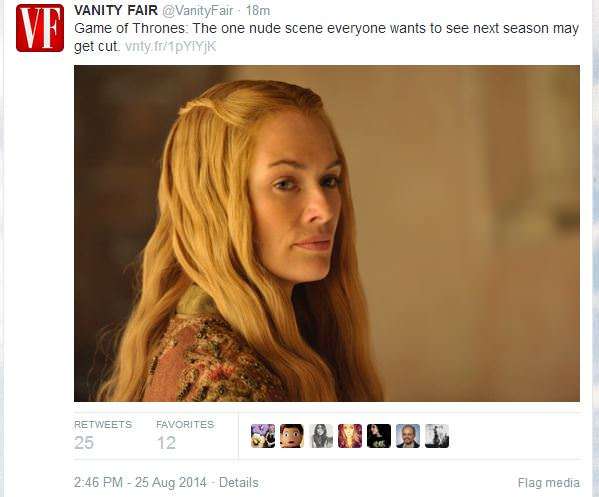Raise Your Own Damn Children, Porn Edition
Noam Millman responds to Damon Linker and me on sex work and people's adult children going into it.
Linker suggested folks rethink their morally-permissive attitudes toward porn in light of the fact that someday their children could become porn stars. I said the idea that your child could wind up in porn, prostitution, or other erotic arenas was a good argument for decriminalizing and destigmatizing such pursuits. "You could call this a 'moral libertarian' version of Rawls's veil of ignorance," Millman writes of my position.
We don't know what our daughter might decide to do when she is of age. She might decide to have sex for money. Therefore, we should examine our political (and moral) attitudes with a view to who would be most harmed by them – and the person most harmed by a morally condemnatory attitude is the daughter who decides to have sex for money, and would be condemned for it.
As with Rawls's own perspective, this makes perfect sense if you take the existing distribution is a given – in Rawls's case, of wealth; in Nolan Brown's, of life choices. If you don't assume that – if you assume instead that redistribution of wealth will lead to less production of wealth overall, or that a permissive moral attitude will lead to an increase in objectively poorer life choices – then you can't blithely say that the only thing that matters is harm reduction for those who make those choices. You have to weigh the costs on all sides of the equation. This much should be obvious.
But I still think Nolan Brown's critique has teeth, because she's drawing a distinction between the daughter as thought experiment and the daughter in reality.
Linker's daughter-in-porn is a hypothetical. His attitude – he would be appalled – is rooted in the fact that his daughter is not involved in porn, and he hopes she never is. If a grown daughter of his actually were having sex for money, his attitude would unquestionably change.
How would it change? I'm going to assume that this (hypothetical) Linker would make a priority of his daughter's well-being, so I can rule out reactions like killing his daughter for the sake of the family's honor – or, for that matter, cutting off all contact with her for the sake of protecting the virtue of a (hypothetical) younger daughter. In other words, I'm going to assume that if his hypothetical became actual, Linker would actually take an approach something akin to what Nolan Brown hypothesizes. He would likely worry about his daughter being exploited – which might lead him to try to get her out of the business, or might lead him to fight to make sure the business is properly regulated, or any number of other reactions. But I strongly suspect that revulsion, which he previously felt, would no longer hold a place in his heart, not if he valued his relationship with his daughter. And that change, in turn, would change the baseline from which other people judged their own hypothetical daughters' choices.

As a counter-thought-experiment, Millman asks how people would feel about an actress daughter getting a big break on the TV show Game of Thrones—and appearing fully nude, in a simulated sex scene:
Do you have qualms now? If you don't, then I'd say all we're doing is haggling over the price. … If you do have qualms, then clearly you should recognize that your private judgments are not universal. There are just too many actresses competing for those kinds of parts, and too many of those actresses have fathers. You should be open to the possibility that our "morally libertarian" moment has already significantly changed what we actually feel to be base, and may change it further. And so you can't just use your gut as a guide either to whether we're all acting in bad faith, nor to what is "essentially" base or noble.
It's also terrible policy to make laws based on what you would want for your own offspring because, as Adam Ozimek points out at Forbes, "this is a country of free people," not millions of your kids.
Whether you'd want your kid to do something is a terrible, selfish, and self-centered way to think about policy. You hear this kind of argument when it comes to drug use too. "Do you really want your kid to be able to smoke pot?" But the laws of this country aren't the rules of your household. Stopping your kid from smoking pot or becoming a prostitute isn't our job, it's yours.
Hear, hear! But while Millman seems to agree on this front, he suggests that the level of exploitation and danger he imagines in the porn industry may justify trying to discourage its existance. Sure, "questions of exploitation are relevant to all industries–even high paying ones," he acknowleges, but "consent to sex is more fraught and more fragile than consent to being a forklift operator."
This, however, depends on how you define "fraught and fragile." I'm guessing not many people take forklift-driving positions because they just adore the work. People take jobs as forklift drivers for the same reason people take jobs in porn—to make a living—and we don't hear complaints that this situation exploits forklift drivers because they are under economic pressure to accept dangerous work. Yet according to the Occupational Safety and Health Administration, there are about 85 deaths and 34,900 serious injuries related to forklifts each year, with 42 percent of these involving the forklift operator being crushed by a tipping vehicle. How many people are killed each year by porn?


Show Comments (81)